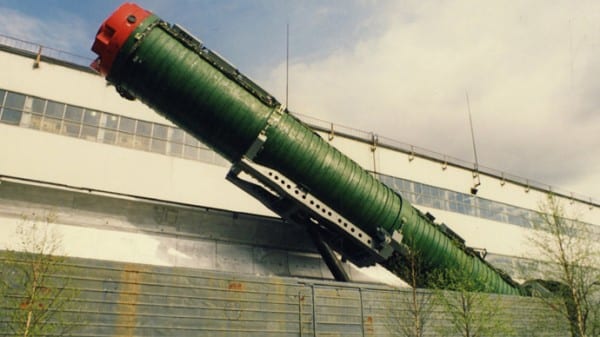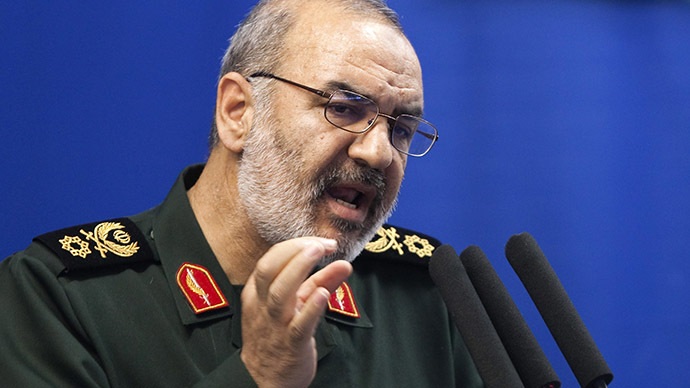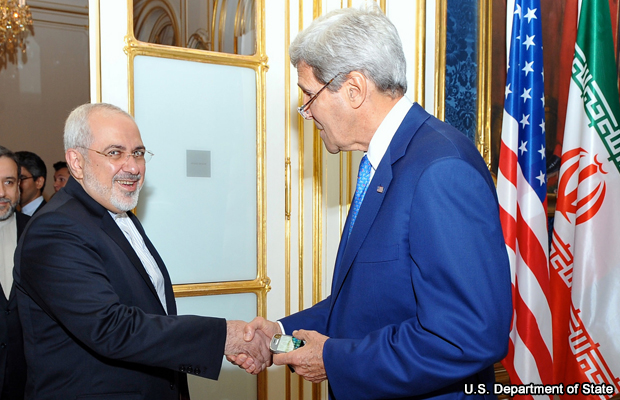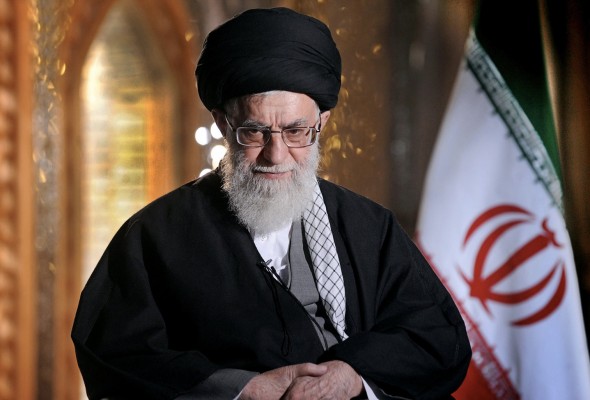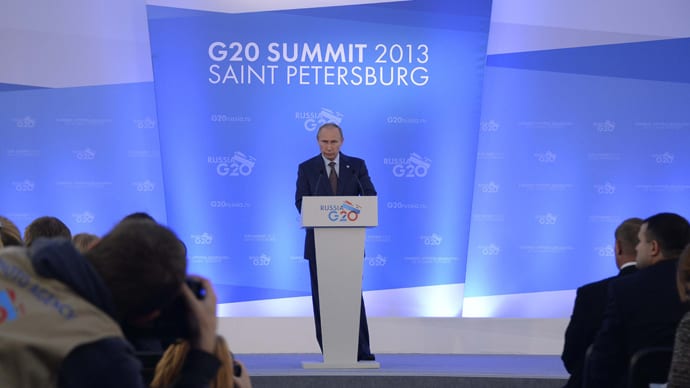Eric Draitser
 [dropcap]T[/dropcap]he news that President Obama has formally asked US Congress to authorize military force against ISIS is not surprising. What may come as a shock to Americans oblivious to these developments is that the administration has de facto declared war on Syria.
[dropcap]T[/dropcap]he news that President Obama has formally asked US Congress to authorize military force against ISIS is not surprising. What may come as a shock to Americans oblivious to these developments is that the administration has de facto declared war on Syria.
On Wednesday, President Barack Obama presented the US Congress with a draft resolution authorizing the use of military force.Liberal pundits have lauded the Obama administration for observing the Constitutional requirement for congressional approval of military action, while many conservatives have predictably pilloried the administration for presenting a “weak” and “flawed” strategy that will be doomed to failure. However both these lines of argument are, in fact, distractions from the far bigger, far more dangerous, and far more criminal action being taken by the White House: an aggressive war against Syria, a sovereign nation.
Distorting the reality of US aggression
While the corporate media is framing the request for authorization as being limited in scope, there are key clauses that should worry anyone interested in peace and stability in Syria, and the Middle East generally.Naturally, after a series of aggressive wars waged by the US (Afghanistan, Iraq, Libya, etc.), many Americans are understandably skeptical of yet another open-ended conflict that will cost American lives, not to mention billions of dollars (note that the countless innocent civilians who will be killed as a result of US operations are almost never mentioned as they are not deemed noteworthy by policymakers or the media).
A careful examination of some key provisions of the president’s proposal reveals that, contrary to the rhetoric, this is in fact a declaration of war on Syria. The internationally, and legally, recognized government of Syria, led by Bashar al-Assad, has provided no such authorization, nor have they been consulted, let alone asked for consent, in the US decision. Therefore, any US military action occurring within Syria’s borders would unquestionably be a violation of international law.
According to the NY Times, Obama’s proposal “would prohibit the use of ‘enduring offensive ground forces’ and limit engagement to three years.” The understandable reaction from a casual reader would be that Obama is trying to avoid any kind of real war, and is instead just looking to engage in limited combat operations against a specific threat. However, that is simply not true for, were one to continue reading the NY Times article, one would find the following:
The resolution also requests authority to wage battle beyond the fight against the Islamic State to include “associated forces.” It would contain no geographic limitations… The omission of any language setting geographic boundaries appeared to anticipate the possibility of attacking the group should it gain a foothold in Lebanon or Jordan, which has fought off sporadic attacks from Islamic State fighters. It could also be used to address future threats from small bands of violent Islamist militants in Libya, Yemen and other Middle Eastern and North African countries that have “rebranded” their identities to take the Islamic State name, and benefit from its notoriety, American officials said.
So this resolution being touted as “limited” and “short-term” is anything but. Rather than cautiously authorizing very specific action, it instead provides Washington carte blanche to engage in a full-scale regional war that could include a number of countries in the region. The transnational character of the Islamic State virtually guarantees such an outcome. However, while Lebanon, Jordan, Libya, and Yemen are explicitly named in the Times article, the real target here is Syria – the only country that has actually been fighting (and winning) a war against IS.
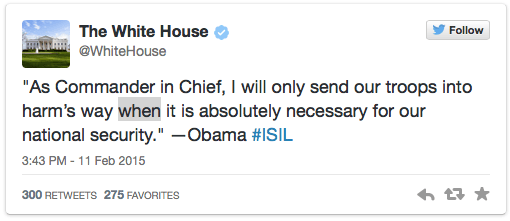
In a recent interview with the BBC, Syrian President Assad responded to a question as to the possibility of his country cooperating with the United States by stating, “No, definitely we cannot and we don’t have the will and we don’t want, for one simple reason — because we cannot be in an alliance with countries which support terrorism.” A more clear rejection of US military action in Syria could not possibly be given.
And so, international observers are left with a central question: when the US inevitably violates Syrian sovereignty in this new phase of the war (they’ve been doing this for months already), will there be an outcry from those who still cling to the seemingly outdated notion of international law? Will there be any leaders who remind Washington and the world that there are clear and unmistakable precedents in international law which define this move as “aggressive”?
Who will stand up and defend the decision of the International Law Commission in 1951 which, after being tasked by the UN to develop a definition of aggression, ultimately decided that: “Aggression is the use of force by a State or Government against another State or Government, in any manner, whatever the weapons used and whether openly or otherwise, for any reason or for any purpose other than individual or collective self-defense or in pursuance of a decision or recommendation by a competent organ of the United Nations”?
READ MORE: ‘US is arms factory for oppressive regimes, revolutionary movements’
Syria, a sovereign state currently at war against multiple external enemies that have infiltrated the country with the covert support of international actors, is now subject to invasion, bombardment, and other forms of aggression by the United States without ever having even threatened to attack the US, its allies, or its interests.
Naturally, the Obama administration would claim that IS beheadings and killings are ample justification for launching an aggressive war. However, no ethical observer or legal scholar would argue that these incidents, which pale in comparison to many other horrific crimes all over the world that the US has conveniently ignored, justify a war of aggression. For, as the International Military Tribunal at Nuremburg unequivocally stated in 1946, “To initiate a war of aggression is not only an international crime; it is the supreme international crime, differing only from other war crimes in that it contains within itself the accumulated evil of the whole.”
Taking this as the precedent, is there any doubt as to the illegality of what President Obama is proposing?
Questions for President Obama
Yet again the drumbeat of war becomes audible. Yet again Americans can rest assured that their elected officials and corporate media mouthpieces will do everything but ask incisive questions that challenge the militarist consensus that exists in Washington. And so, it falls upon those outside of the corporate mainstream to ask such questions, to challenge the false narrative, and to cut through the rhetoric and obfuscation of the bipartisan warmongers. And it is in this spirit of truth-telling, to say nothing of morality and justice, that I submit the following questions to President Obama:
1. Your proposed resolution explicitly prohibits “enduring offensive ground forces” being utilized in this so-called war against IS. Can you clearly and specifically explain what the word “enduring” actually means, and more to the point, how offensive ground forces differ from other ground forces? Put another way, what will stop you or your successor from simply waging offensive campaigns under the moniker of “defensive” campaigns? We’ve seen countless times before, both with President Bush and your administration, the shift in terminology that is in fact no change in actual tactics or policy. So, with that in mind, will you or your successor be guilty of violating this authorization by engaging in such deliberately misleading policies?
Obama asks Congress for permission to strike ISIS anywhere in world (RT.com)
2. This resolution grants you the authority to fight not only IS, but also so called “associated forces.” What or who exactly are the associated forces? Does this include the al-Qaeda affiliated al Nusra Front which has been documented as collaborating with Israel? Does this make Israel an “associated force” considering that they are in league with a known al-Qaeda group?
What about the so called “moderate rebels” which your administration has so ardently supported? Thousands upon thousands of these fighters have defected to IS, bringing their US weapons and training with them. Are you now suggesting that US military will be fighting against the forces that our own government has armed? Will anyone in the CIA or any other agency be held accountable for having provided the weapons and training that are now being employed by “the enemy”?
3. You’ve declared that a time limit of three years must be placed on US military operations against IS. However there seems to be no clear objective other than the abstract and intangible goal of “defeating ISIS.” Considering that the Islamic State is a transnational fighting force with a vast network of resources, allied factions, and regions under its control, how is it possible to defeat such a force without a full scale regional war far larger than the criminal war against Iraq by your predecessor? Isn’t it true that you’re simply waging yet another unwinnable war, to say nothing of it being an overtly criminal war?
Are you prepared to be morally and legally responsible for the costs of this war, both in lives and resources? And what happens when the three year time limit has expired and IS still exists, as this is undeniably going to be the result? Will you be prepared to have your war and your policy deemed a failure, just as Bush’s have been?
4. Considering the fact that this resolution will grant you the authority to wage war inside Syria without the consent of the Syrian government, are you prepared to wage war against Damascus if it defends its people from your bombs? As a legal scholar who has focused on international law, you’re undoubtedly aware of the inviolable right of self-defense as enumerated in Chapter VII, Article 51 of the UN Charter which states that “Nothing in the present Charter shall impair the inherent right of collective or individual self-defense if an armed attack occurs against a member of the United Nations.” And so, the Syrian government will be well within its legal rights to defend with military force against US aggression, be it from ground forces, aerial bombardment, etc. What will you do in the event that this happens?Will you compound your grave breach of international law with yet another “supreme crime”?
5. You claim to be conscientious when it comes to international law, and yet you have already violated it countless times, long before the words “Islamic State” were on your lips. You refused to get a UN Security Council resolution authorizing war in Libya, and instead distorted the meaning of Resolution 1973 which authorized a No-Fly Zone over Libya, transforming it into a de facto declaration of war.Similarly, you’ve waged secret wars in Yemen, Somalia, Pakistan, and Mali and all over the world. Honestly, why should anyone trust you, or any of the “guarantees” and “limits” that will purportedly guide the military action?
Your administration has fomented the civil war in Ukraine, and its policies have brought the US and Russia into direct confrontation for the first time since the Cold War. Your war on Libya has created a failed state and hotbed for terrorism where there was none before.Your drone war in Pakistan has achieved nothing but needless civilian deaths and created endless fodder for new terrorist recruitment. Your secret drone war in Yemen has been a failure, and is one of the principal reasons for the fall of the puppet government that your administration put in place during your first term.Your policy in Somalia has achieved little more than more innocent Somalis being killed, to say nothing of the criminal policy that led directly to deaths of at least 250,000 Somalis from starvation.
Considering all of these wars that you are directly responsible for, how can the American people, let alone the people of Iraq, Syria, and the region broadly, trust anything you say? Considering all of the above wars, and the new regional war you have planned, how can you still claim to be a worthy recipient of the Nobel Peace Prize? Shouldn’t you consider returning it?
And finally, Mr. President…are you prepared to be remembered for having started yet another endless war? Are you prepared for the irreparable damage that this will cause to your own legacy? Are you prepared for the inevitable blowback of these policies? Moreover, will you take responsibility for it now, and in the future?
Mr. President, I await your response.
ABOUT THE AUTHOR
 Eric Draitser is an independent geopolitical analyst based in New York City and the founder of StopImperialism.com.
Eric Draitser is an independent geopolitical analyst based in New York City and the founder of StopImperialism.com.
What is $1 a month to support one of the greatest publications on the Left?
